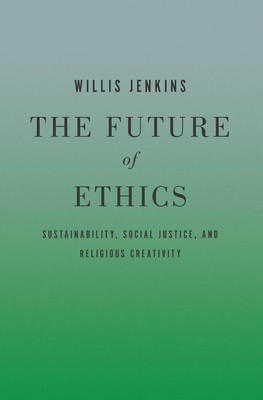
- We will send in 10–14 business days.
- Author: Willis Jenkins
- Publisher: Georgetown University Press
- ISBN-10: 1626160171
- ISBN-13: 9781626160170
- Format: 15.2 x 22.9 x 2.1 cm, softcover
- Language: English
- SAVE -10% with code: EXTRA
Reviews
Description
In a world of climate change and wicked social problems, including rampant inequality and poverty, what kinds of solutions can religious communities offer? Traditional religious ethics examines texts and traditions and highlights principles and virtuous behaviors that can apply to particular issues. Jenkins turns this tradition on its head by developing a strategy of "prophetic pragmatism," an approach to ethics that begins with concrete problems and adapts to changing circumstances, inventing the practices that sustain the possibility of love and justice in the face of social quagmires. This brand of pragmatism takes its cues from liberationist theology, with its emphasis on how individuals and communities actually live their lives, and Jenkins is deeply influenced by such figures as Martin Luther King, Jr. and Dietrich Bonhoeffer who prioritized practical justice over dusty theological formulations. The problems Jenkins addresses are enormous: climate change, intergenerational justice, human rights, and human development. Can religious communities make a real difference? They can, ultimately, by sustaining a love of justice.
EXTRA 10 % discount with code: EXTRA
The promotion ends in 20d.14:33:59
The discount code is valid when purchasing from 10 €. Discounts do not stack.
- Author: Willis Jenkins
- Publisher: Georgetown University Press
- ISBN-10: 1626160171
- ISBN-13: 9781626160170
- Format: 15.2 x 22.9 x 2.1 cm, softcover
- Language: English English
In a world of climate change and wicked social problems, including rampant inequality and poverty, what kinds of solutions can religious communities offer? Traditional religious ethics examines texts and traditions and highlights principles and virtuous behaviors that can apply to particular issues. Jenkins turns this tradition on its head by developing a strategy of "prophetic pragmatism," an approach to ethics that begins with concrete problems and adapts to changing circumstances, inventing the practices that sustain the possibility of love and justice in the face of social quagmires. This brand of pragmatism takes its cues from liberationist theology, with its emphasis on how individuals and communities actually live their lives, and Jenkins is deeply influenced by such figures as Martin Luther King, Jr. and Dietrich Bonhoeffer who prioritized practical justice over dusty theological formulations. The problems Jenkins addresses are enormous: climate change, intergenerational justice, human rights, and human development. Can religious communities make a real difference? They can, ultimately, by sustaining a love of justice.


Reviews